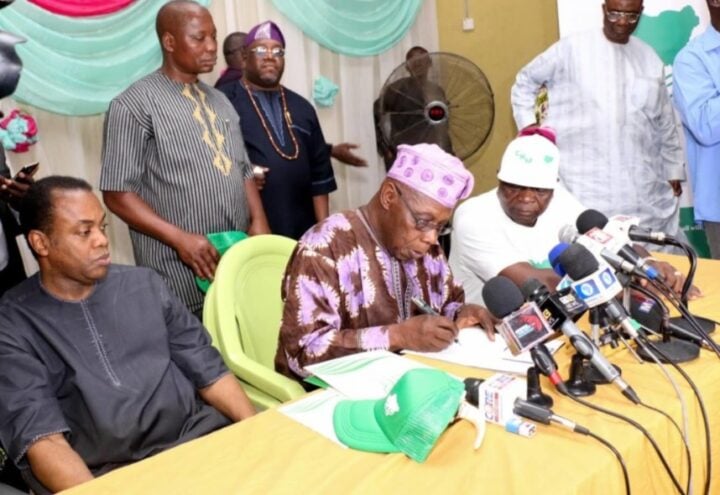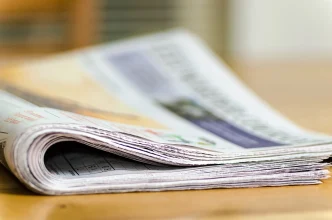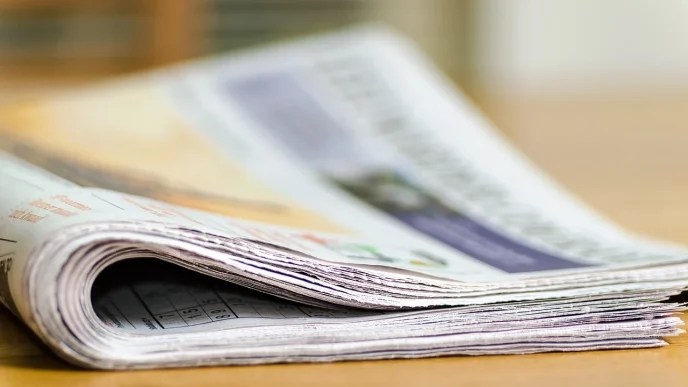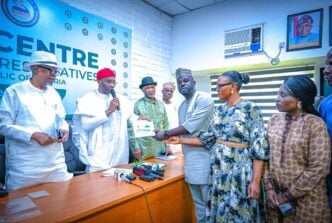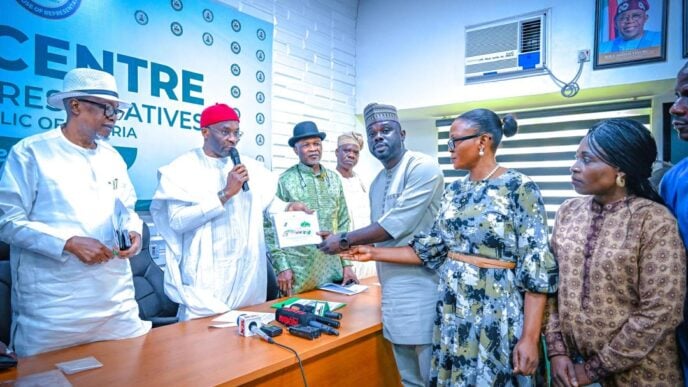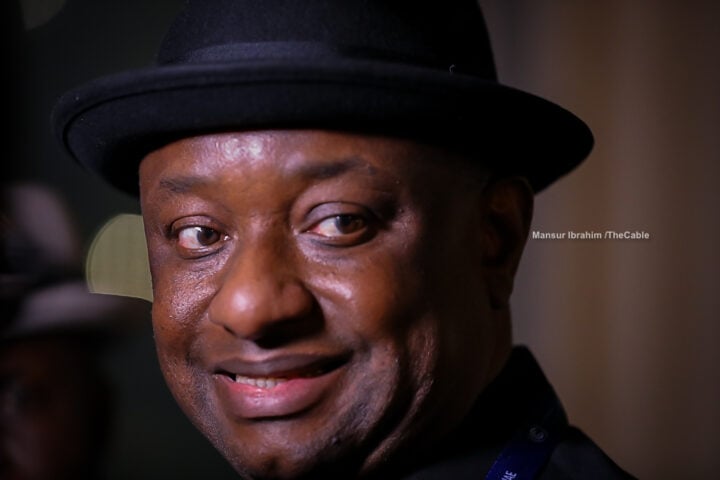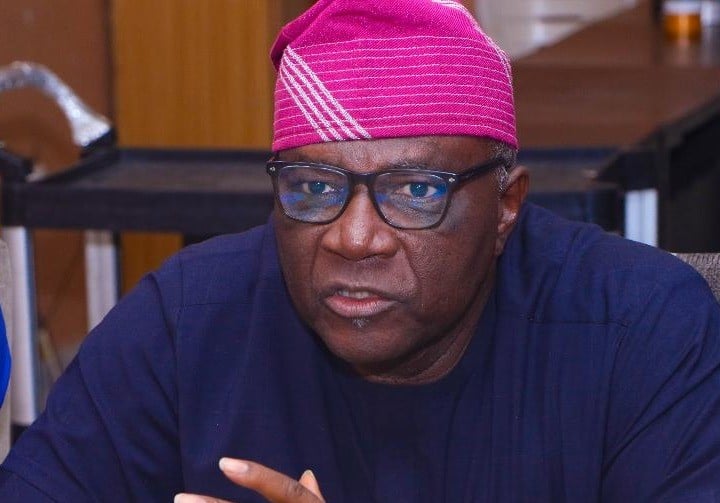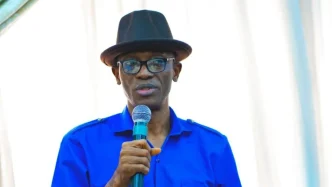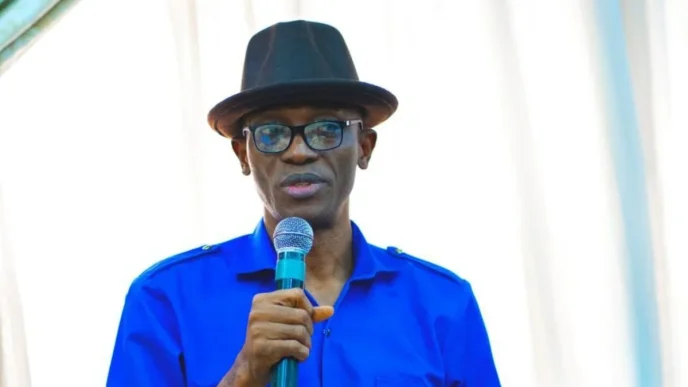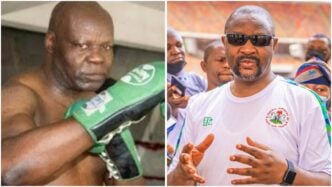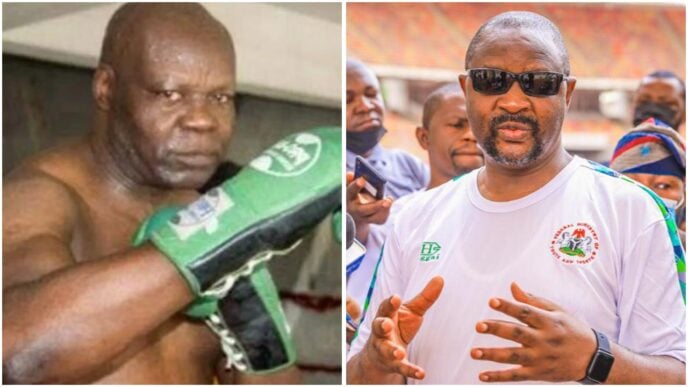LR: Donald Duke, Olusegun Obasanjo, and Olagunsoye Oyinlola
In May 2018, a coalition movement initiated by former President Olusegun Obasanjo adopted the African Democratic Congress (ADC) as its political platform to challenge then-President Muhammadu Buhari in the 2019 elections.
The Obasanjo-led movement — Coalition of Nigeria Movement (CNM) — unveiled ADC as an anti-Buhari political party during a press conference on May 10, 2018.
The press conference was attended by Obasanjo, Olagunsoye Oyinlola, co-convener of the movement and a former governor of Osun state, and other political stakeholders.
Obasanjo had proposed the CNM as a non-partisan platform that would “redeem” Nigeria from the “lice of poor performance” of the Buhari-led administration.
Advertisement
He said the movement adopted ADC to bring about “desirable change in the Nigerian polity and governance”.
The former president stated that ADC was not based on the “past and condemnable records of PDP” and the “disastrous performance of APC”.
“Let me start by welcoming and commending the emergence of a renewed and reinvigorated African Democratic Congress, ADC, as a political party,” the former president had said.
Advertisement
“Since the inception of the Coalition for Nigeria Movement (CNM), many of the sixty-eight registered political parties had contacted and consulted with the movement on coming together and working together.
“The leadership of the movement, after detailed examination, wide consultation and bearing in mind the orientation, policies and direction of the movement, have agreed to adopt ADC as its platform to work with others for bringing about desirable change in the Nigerian polity and governance.”
Also, Oyinlola said the decision to move into ADC was “an appreciation of the progressive essence of the party and its untainted existence on the terrain of our nation’s politics”.
The former governor said Nigerians should expect more from the movement, describing the fusion as “the first in a multi-layered action plan to give back the country to its much-deprived people”.
Advertisement
However, the fusion of the ADC and the Obasanjo-led movement lasted for just about three months.
In August 2018, a faction of CNM pulled out of the ADC and announced itself as the New African Democratic Congress (N-ADC).
Precious Elekima, protem national chairman of the group, made the announcement at a news conference in Abuja.
Elekima said the group withdrew from ADC because it did not want to be a party in the Coalition of United Political Parties (CUPP).
Advertisement
He noted that ADC leadership joined the alliance without consulting stakeholders.
Elekima added that the ADC defied the clarion call by Obasanjo for the rejection of the Peoples Democratic Party (PDP) and All Progressives Congress (APC) by joining the alliance.
Advertisement
In July 2018, the ADC joined 36 other opposition parties and the Reformed All Progressive Congress (R-APC) and PDP to form an alliance called CUPP.
The parties signed a memorandum of understanding (MoU) to contest the 2019 elections under one platform.
Advertisement
However, Buhari was re-elected in the 2019 elections.
OPPOSITION COALITION ADOPTS ADC AHEAD OF 2027 ELECTIONS
Advertisement
On Tuesday, the opposition politicians adopted ADC as the coalition platform ahead of the 2027 elections.
Former Senate President David Mark and Rauf Aregbesola, ex-minister of interior, were appointed as the party’s interim national chairman and secretary, respectively.
Bolaji Abdullahi, a former minister of sports, is the protem national publicity secretary of the ADC.
On Wednesday, the coalition unveiled ADC in Abuja as the platform to seek elective positions and wrest power from the ruling APC in 2027.
The party’s national executives, led by Ralph Nwosu, resigned for the Mark-led leadership to take over.
Politicians at the event include former Vice-President Atiku Abubakar; Peter Obi, presidential candidate of the LP in 2023; Aminu Tambuwal, former governor of Sokoto; Rotimi Amaechi, former minister of transportation; Solomon Dalung, ex-minister of sports; and Odigie Oyegun, the former national chairman of the APC.
Others are Abubakar Malami, former attorney-general of the federation (AGF) and minister of justice; Dino Melaye; Dele Momodu, publisher of Ovation magazine; Eyinnanya Abaribe; Gabriel Suswan; Ireti Kingibe; Elisha Abbo; Uche Secondus; Tunde Ogbeha; Victor Umeh; Laureata Onochie; Liyel Imoke; Bolaji Abdullahi, among others.
